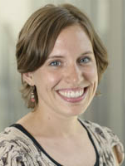Psychosocial aspects of female fertility preservation counseling Meeting Abstract
| Authors: | Semler, R.; Kelvin, J.; Goldfarb, S.; Martino, L.; Casson, A.; Thom, B. |
| Abstract Title: | Psychosocial aspects of female fertility preservation counseling |
| Meeting Title: | 47th Annual Congress of the Oncology Nursing Society (ONS) |
| Abstract: | Cancer treatment can impair fertility and prevent the achievement of family building goals; however, reproductive technology allows for fertility preservation (FP) before treatment. Pre-treatment fertility counseling is an essential element of holistic care. Fertility Nurse Specialists (FNS), advanced practice nurses with specialized training in onco-fertility, can play an integral role in ensuring patients receive appropriate counseling to make informed decisions about FP. This project describes key components in structuring and refining nurse-led onco-fertility counseling to females: 1) the FNS role; 2) factors influencing patient decisions about pre-treatment FP; and 3) levels of decisional conflict among patients who received pre-treatment fertility counseling. At our NCI-designated cancer center, patients are offered one-on-one counselling to review the risks treatment can pose to fertility and discuss FP options. When meeting with female patients, the FNS reviews information on the practical aspects of egg/embryo freezing, including administration of hormonal injections and use of transvaginal ultrasound. Psychosocial factors, such as the desire to have (more) children, objections or concerns about using assisted reproductive technology, financial resources, and family support, are also explored. To explore the patient experience, a sample of female stage I-III breast cancer survivors who had received FP counseling by one of our FNSs was recruited via email to participate in an investigator-designed and Institutional Review Board-approved online survey, in which respondents ranked the importance of potential decision-making factors and reported their level of decisional conflict about undergoing pre-treatment FP. Among 209 respondents (30% response rate), frequently endorsed decision-making factors included ability to feel hopeful about the future (91%), concern about future regret (90%), likelihood of success (88%), desire to have more children (88%), feeling overwhelmed at diagnosis (88%), cost of FP (78%), and concerns about taking hormones (73%). The Decision Conflict Scale-SURE (DCS-SURE), a validated 4-item tool, measured uncertainty related to their FP decision. On a 0-4 scale, with scores ≤3 suggesting some decisional conflict, 68% of respondents experienced no decisional conflict (median 4, IQR: 1). Limited family building options after treatment is a source of distress for many cancer survivors. FNS counselling that describes the FP process and allows patients to explore the clinical and psychosocial factors that are important to them, is key for helping patients make informed decisions with minimal decisional conflict. |
| Keywords: | women's health; california; human; female; congresses and conferences -- california; fertility preservation -- psychosocial factors; counseling -- psychosocial factors |
| Journal Title: | Oncology Nursing Forum |
| Volume: | 49 |
| Issue: | 2 |
| Meeting Dates: | 2022 Apr 27-May 1 |
| Meeting Location: | Anaheim, CA |
| ISSN: | 0190-535X |
| Publisher: | Oncology Nursing Society (ONS) |
| Date Published: | 2022-03-01 |
| Start Page: | 15 |
| Language: | English |
| DOI: | 10.1188/22.Onf.E1 |
| PROVIDER: | EBSCOhost |
| PROVIDER: | cinahl |
| PUBMED: | 35191904 |
| DOI/URL: | |
| Notes: | Meeting Abstract: O25 -- Found in PDF named "2022 ONS Congress Podium Abstracts" -- PDF formats the author Shari Goldfarb’s name backwards -- Source: Cinahl |
Altmetric
Citation Impact
BMJ Impact Analytics
Related MSK Work








